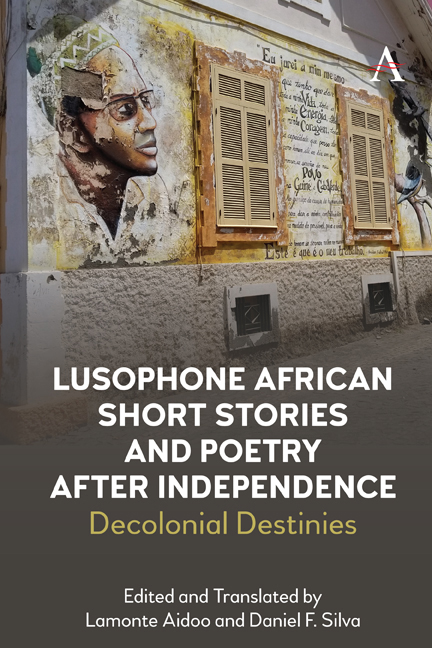Chapter 1 - Boaventura Cardoso
Published online by Cambridge University Press: 23 February 2022
Summary
Introduction
Boaventura Silva Cardoso was born on July 26, 1944, in Luanda, where he spent most of his childhood and completed his elementary and secondary education prior to earning his bachelor degree in social sciences from the Pontifical University of Saint Thomas Aquinas in Rome. He worked for the Portuguese colonial state in the public finances department. Following Angolan independence from Portugal in 1975, he occupied numerous roles within the People's Movement for the Liberation of Angola (MPLA) government, namely, as the director of the National Institute of Book and Record, secretary of state for culture, minister of information, Angolan envoy to the United Nations, and ambassador of Angola to France, Italy, and Malta. Most recently, he served as minister of culture, and governor of the Malanje province. Though he has become most visible in recent years as a writer, he continues to be a highly regarded member of the ruling party, the MPLA.
His writing career began before independence, with the publishing of short stories and poems in newspapers as early as 1967. His literary work is tied, in many ways, to the development of Angola's postcolonial literature. In addition to being an important member of the “generation of 70” due to his writing, he also partook in the establishment of various mechanisms and spaces for literary production and dissemination—as a founding member of the Angolan Writers Union and as an editor for the literary magazine, Angola. He would go on to publish several collections of short stories and novels, temporally located in the different stages of anticolonial struggle, nation-building, and civil war, which were often laudatory of the MPLA's endeavor as a revolutionary party and state. This occurs in his work at both the diegetic level, in which revolution itself is always a collective goal (and best guaranteed by MPLA members and mythologies), and at a narrational level by the enunciative “I”.
This mythologizing verve can be found in the short story included below, “The Pompeu e Costa Family,” from Cardoso's earliest collection, Dizanga dia muenho, published in 1977, but comprising many of his pre-independence works.
- Type
- Chapter
- Information
- Lusophone African Short Stories and Poetry after IndependenceDecolonial Destinies, pp. 43 - 46Publisher: Anthem PressPrint publication year: 2021



